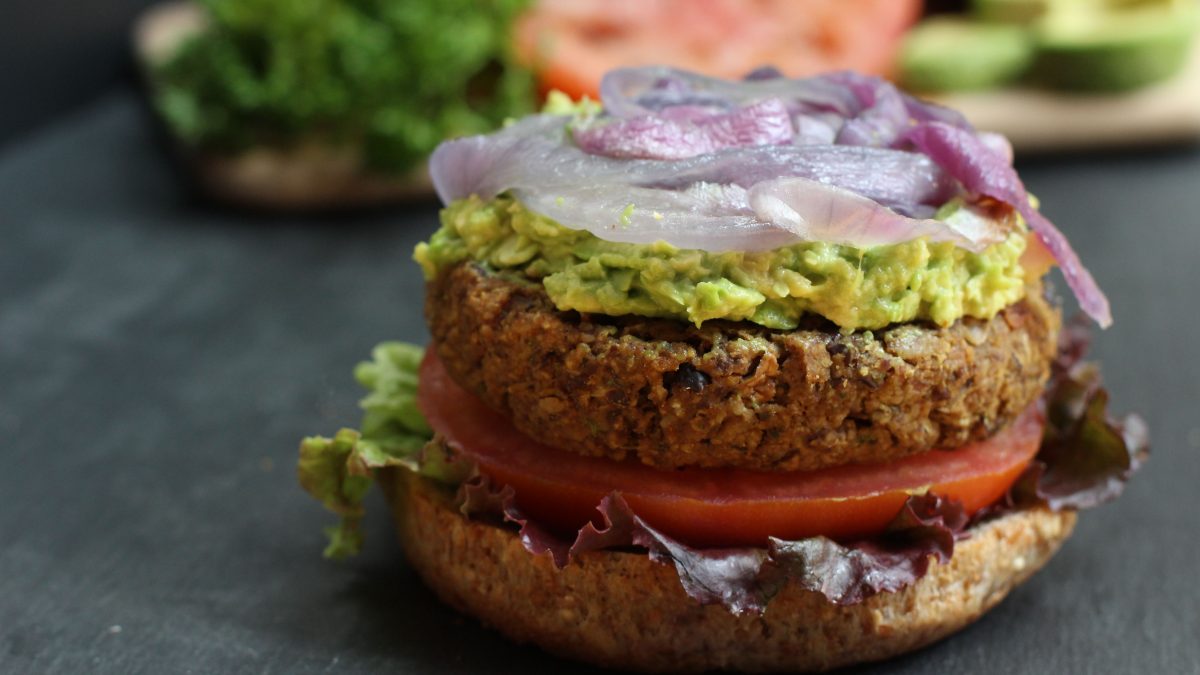A cancer diagnosis is seen as a teachable moment in medicine where we can try to get people to eat healthier, but “research has suggested that male cancer patients may be reluctant to introduce dietary modification…This has been attributed to dietary modifications often being viewed as mimicking “feminine” eating behaviours, such as emphasizing an increase in fruit and vegetables.”
As I discuss in my video Changing a Man’s Diet After a Prostate Cancer Diagnosis, “[a]lthough healthy eating might enhance long-term survival, few men with prostate cancer make diet changes to advance their well-being.” Many of the cancer survival trials require adherence to strict plant-based diets, and though researchers tried providing extensive nutrition education and counseling programs, dietary adherence was still a challenge.
Apparently the way Dean Ornish was able to reverse the progression of prostate cancer with a plant-based diet was by home-delivering prepared meals to the subjects’ doors, figuring men are so lazy they’ll just eat whatever’s put in front of them. After all, male culture tends to encourage men to drink beer and eat convenience food and meat.
Take Men’s Health magazine, for example. Included in the list of things men should never apologize for were liking McDonald’s, not offering a vegetarian alternative, and laughing at people who eat trail mix. The magazine features articles with such titles as “Vegetables Are for Girls” and sections like “Men and Meat: There’s Only One Kind of Flesh We Like Better and Even Then She’d Better Know How to Grill.”
To appeal to male sensibilities, doctors are advised to use ‘body as machine’ metaphors, framing “men’s health in terms of mechanical objects, such as cars, requiring tuning.” But if men are so concerned about their masculinity and manhood, maybe we instead should share a bit about what prostate cancer treatment entails. The prostate is situated at the base of the penis, so when you core it out with a radical prostatectomy, you lose about an inch off your penis, if it gets erect at all. Only 16 percent of men undergoing the procedure will regain their pre-surgery level of erectile functioning.
Patients are typically quoted erectile dysfunction rates around 60 to 70 percent, but studies have generally considered erectile function recovery “as the ability to maintain an erection hard enough for penetration about 50% of the time…” So, occasionally being able to get an erection is considered recovery, but when a surgeon tells patients they will recover function, the patients probably assume that means the kind of function they had prior to surgery, which only happens 16 percent of the time and only 4 percent of the time in men over 60. Only 1 in 25 gets his baseline sexual function back.
Erections aren’t the only issue. Patients experience other problems like orgasm-associated pain even years later and urinary incontinence during foreplay, stimulation, or orgasm. The vast majority of couples overestimate how much function they’re going to recover. Couples reported feeling loss and grief. Having cancer is bad enough without the additional losses. You’d think that would be enough to motivate men to improve their diets, but almost a fourth of the men newly diagnosed with prostate cancer state they would prefer to have their lives cut short rather than live with a diet that prohibits beef and pork. More men would rather be impotent than improve their diet. It appears pleasures of the flesh may sometimes even trump pleasures of the flesh.
Did I say reverse the progression of cancer? See Cancer Reversal Through Diet? and my overview video How Not to Die from Cancer.
For more on prostate cancer prevention and survival, check out:
- Prostate Cancer Survival: The A/V Ratio
- Preventing Prostate Cancer with Green Tea
- Treating Prostate Cancer with Green Tea
- The Role of Soy Foods in Prostate Cancer Prevention and Treatment
- Tomato Sauce vs. Prostate Cancer
- Prostate Cancer and Organic Milk vs. Almond Milk
- Treating Advanced Prostate Cancer with Diet (Part 1)
- Treating Advanced Prostate Cancer with Diet (Part 2)
Interested in more information on maintaining male sexual function? See:
- Survival of the Firmest: Erectile Dysfunction and Death
- Pistachio Nuts for Erectile Dysfunction
- Watermelon as Treatment for Erectile Dysfunction
- Saffron for Erectile Dysfunction
In health,
Michael Greger, M.D.
PS: If you haven’t yet, you can subscribe to my free videos here and watch my live, year-in-review presentations:
- 2012: Uprooting the Leading Causes of Death
- 2013: More Than an Apple a Day
- 2014: From Table to Able: Combating Disabling Diseases with Food
- 2015: Food as Medicine: Preventing and Treating the Most Dreaded Diseases with Diet
- 2016: How Not To Die: The Role of Diet in Preventing, Arresting, and Reversing Our Top 15 Killers
